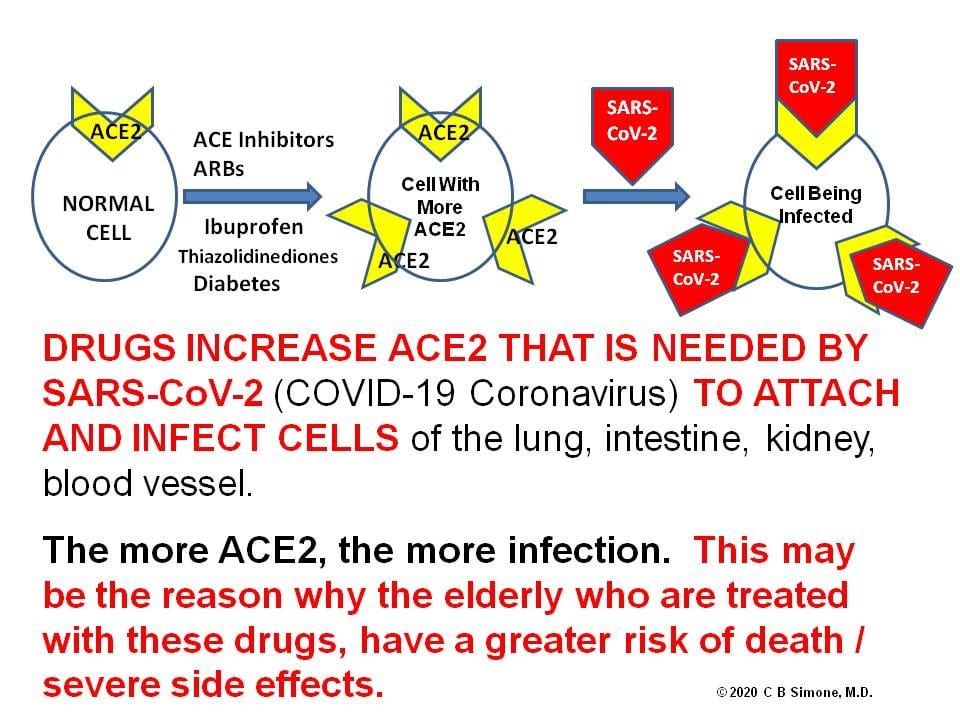A joint opinion statement about this topic was issued on March 17, 2020 by the American College Cardiology, American Heart Association, and the Heart Failure Society of America:
“The continued highest standard of care for cardiovascular disease patients diagnosed with COVID-19 is top priority, but there are no experimental or clinical data demonstrating beneficial or adverse outcomes among COVID-19 patients using ACE-I or ARB medications,” said Richard J. Kovacs, MD, FACC. “We urge urgent, additional research that can guide us to optimal care for the millions of people worldwide with cardiovascular disease and who may contract COVID-19. These recommendations will be adjusted as needed to correspond with the latest research.”
“In the event patients with cardiovascular disease are diagnosed with COVID-19, individualized treatment decisions should be made according to each patient’s hemodynamic status and clinical presentation.”
Dr Simone’s Recommendation March 18, 2020:
Speak with your prescribing physician about this to determine what is best for you.
We should always decrease risk while maintaining good blood pressure and diabetes control. Diabetes (34 million Americans) and certain medicines (ACE inhibitors, ARBs, ibuprofen, thiazolidinediones) taken by tens of millions of Americans increase the ACE2 receptors that allow the virus to attach and infect cells. Once these patients are infected, it may be too late. Therefore, physicians should consider modifying these medications or substituting them with calcium channel blockers or other diabetes medicines to maintain good blood pressure control and blood glucose control for a temporary period of time until the pandemic wanes.
Examples of (ACE) Angiotensin Converting Enzyme Inhibitors:
- Benazepril (Lotensin, Lotensin Hct)
- Captopril (Capoten)
- Enalapril (Vasotec)
- Fosinopril (Monopril)
- Lisinopril (Prinivil, Zestril)
- Moexipril (Univasc)
- Perindopril (Aceon)
- Quinapril (Accupril)
- Ramipril (Altace)
- Trandolapril (Mavik)
Examples of (ARBS) Angiotensin II Receptor Blockers:
- Azilsartan (Edarbi)
- Candesartan (Atacand)
- Eprosartan
- Irbesartan (Avapro)
- Losartan (Cozaar)
- Olmesartan (Benicar)
- Telmisartan (Micardis)
- Valsartan (Diovan)
Examples of Thiazolidinediones:
- Rosiglitazone (Avandia)
- Pioglitazone (Actos)
Examples of Antihypertensive calcium channel blockers that don’t increase ACE2 that may be an alternative:
- Norvasc (Amlodipine)
- Plendil (Felodipine)
- DynaCirc (Isradipine)
- Cardene (Nicardipine)
- Procardia XL, Adalat (Nifedipine)
- Cardizem, Dilacor, Tiazac, Diltia XL, (Diltiazem)
- Sular (Nisoldipine)
- Isoptin, Calan, Verelan, Covera-HS (Verapamil)




